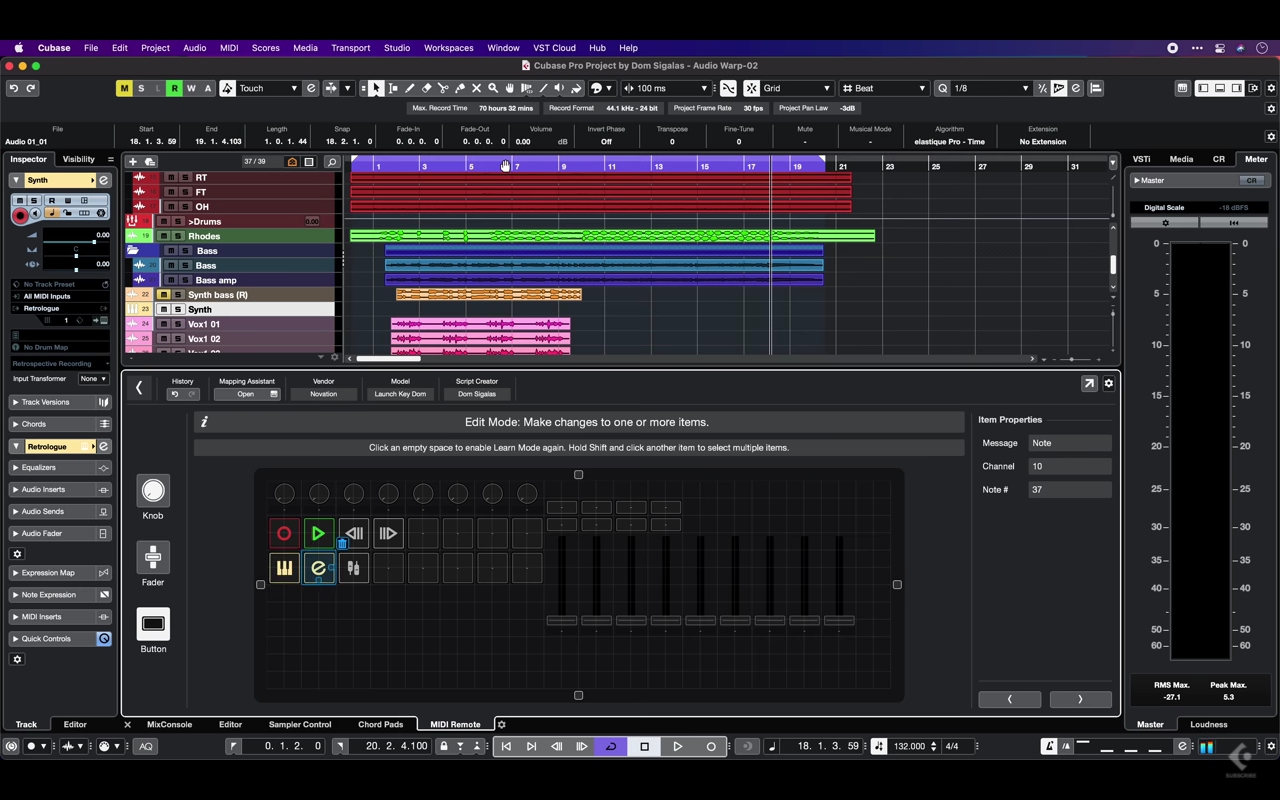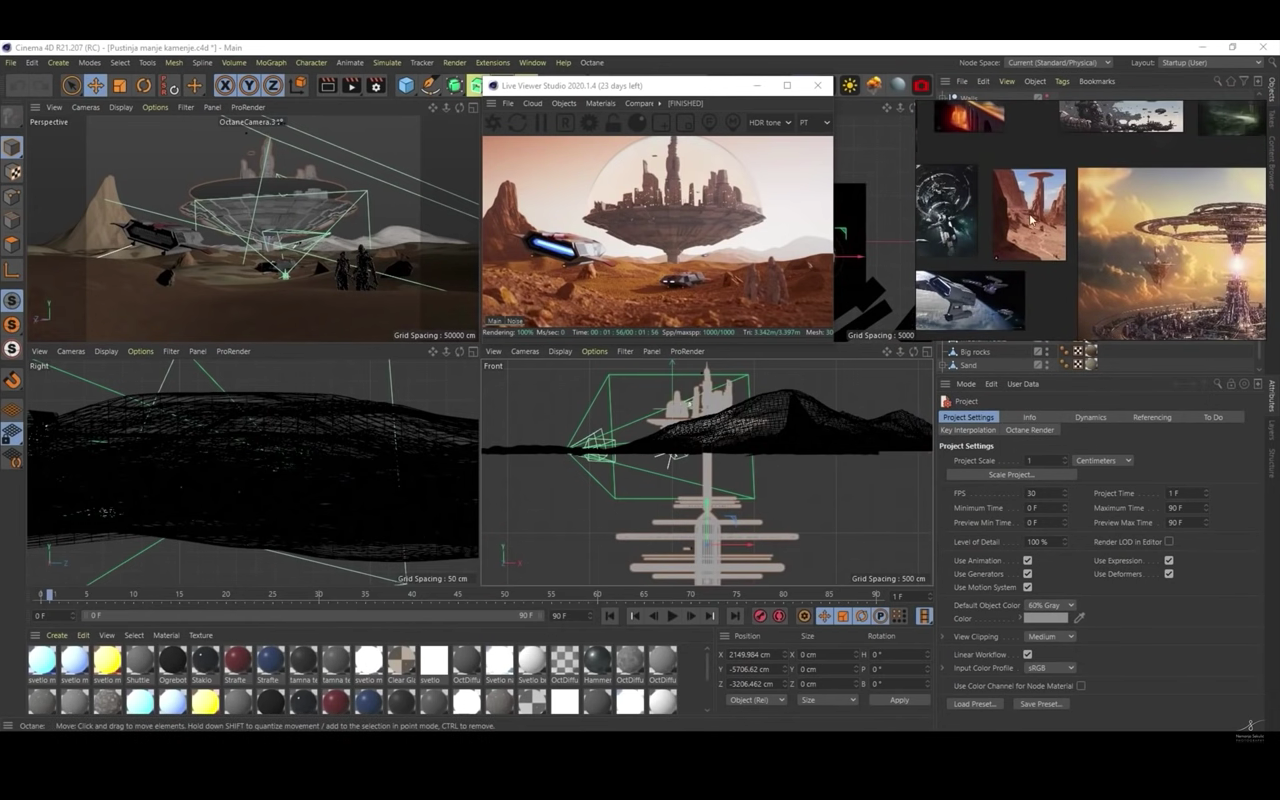

Are Desktop Apps Dead?
source link: https://liou28335.medium.com/are-desktop-apps-dead-4345f38ace65
Go to the source link to view the article. You can view the picture content, updated content and better typesetting reading experience. If the link is broken, please click the button below to view the snapshot at that time.
Are Desktop Apps Dead?

There has been word floating around town for the past few years. They say desktop applications are dead. They say the web has consumed the entire desktop space. They say that the remaining desktop apps that are left will eventually move to the web. Some extremist say that anyone still developing for desktop platforms or still using desktop apps are dinosaurs waiting to happen. Other extremist say that a day will come when the only desktop app we would have installed on our systems will be our web browser and every other application will run on the web. Some have also said that web-assembly will be the final nail in the coffin for desktop apps. In this article I will break down reasons why these statements are a million miles away from reality. Desktop apps are not dead and will continue to be here 100 years from now.
You see, back in the 90s and the early 2000s, the web was very immature. A lot of complex apps would not run properly and the tools to build fairly complex apps on the web were largely absent. Basic utility software like PDF converters, notepad, mark-down apps and music players all had to run on the desktop for a good user experience. Even some apps that had no business being desktop apps were still desktop apps. Those kind of CRUD apps we built using java swing and JDBC. Users would open their desktop apps, sign into their account and access features their account would allow them to. It is no surprise that when the web finally matured into what it is today, these “desktop” apps were consumed and made full-blown web applications. The truth is that these applications had no business being desktop in the first place. They were simply waiting for the web to mature, to take their rightful place on the web.
Some would even make arguments that software like Figma are a testament to the fact that the web is here to swallow all desktop apps. On the outside, this may seem like an actual argument until you look closer and everything falls apart. Figma is a software that should run on the web and Figma is also not resource demanding software. If you find yourself needing to enhance your laptop/PC by getting a new RAM or graphics card to run a desktop software like Figma, maybe you should toss that computer in the bin and get a modern one.
The vast majority of professional tools which are desktop based will never move to the web. Tools that are used by specialist, some of which are real-time (running on multiple frames per second rather than waiting for events), and some of which need full direct access to your computer’s resources without being sandboxed. I’m talking about the likes of Xcode, Visual Studio, Adobe after effect, Cubase, Maya, 3D max, Zmax, Houdini, Nuke, Unreal Engine, Ableton, Blender. Also software like an ID card printer that takes pictures of students using a webcam and then sends the info to the printer to print and generate an ID card. There are many more examples I could give.
Aside from web apps never getting anywhere near the performance of desktop apps (When I say desktop apps I mean something like the complex ones I listed), they can be very inconvenient and they often provide inferior user experience. Users will never have the chance to own their software as they will be perpetual tenants. The moment someone does not pay the predatory subscription fee, they will no longer have access to your application, it also does not matter if such user has been paying for the software for the past 10 years. Miss a day of payment and that’s it! You are kicked out of your own account. Also, why would I want my app to be web dependent if it does not need to be? Honestly, imagine if you are a graphics designer and you always have to be connected to the internet to use photoshop. Should anything happen to your internet connection, you just cannot work for the day. Even if your connection is great, and you have paid your subscription fee, the servers could still be down. Imagine you have a deadline in 3 days and there is a lot of work to do, but the servers keep having downtimes. This will never be a problem if it was a desktop application. Also note that in terms of screen size, you will be restricted to the page view of your web browser which in my opinion affects user experience for apps that have a pretty complex UI (like the ones below).


I could go on and on, talking about multiple reasons why I would always choose desktop apps to their web counterparts. I would own my software, I would have better performance, I would use the application in the full monitor screen, I do not need internet access, I would pay once and have the software for life, I would not have to deal with server downtimes, I would have better user experience. Not to mention that Most laptops/desktops these days come with 1TB or more and most desktop apps barely scratch 1GB or more.
Web apps are great for …
The web is great for perfect for apps that are not performance intensive and apps that continuously need network access and a database. Take for instance Youtube desktop, netflix desktop app, Facebook etc. I would rather visit Youtube.com than download the youtube desktop app to use, same with facebook and Netflix. Also, web apps are better when we are talking about lightweight utility apps like calendars, calculators, PDF converters, markdown apps, etc.
At the end of the day, users would still want to own their software if they can. If the software I’m using is not dependent of information from a server, then why would I want to run it on my web browser, given all the limitations of web technologies. The only people who would profit from this move are the software companies who will make users pay $20 a month for a software that should be sold for $100 for a lifetime.
So should I study desktop development?
Desktop development as a field is really niche and this is where I would agree with the statement that desktop apps are dying; Hear me out. Back in the days, you could get a job with skills in Java swing and JDBC. Companies were looking for desktop development skills. These days, those software have moved to the web as I have explained earlier. The companies that are still building software for desktop are not looking for desktop developers. These companies are looking for specialists in the software field they are into. BlackMagic Design, the company behind DaVinci Resolve software are looking for specialists in video encoding/decoding, video editing algorithms and more. Sound particles, the company behind several audio plugins are looking for specialists in audio programming. Microsoft will be more interested in people who have worked on data analytics/visualisation software to work on their PowerBI desktop application. These companies use several desktop GUI libraries, some of which are even in-house products and are not available to the public. So learning desktop development in general will not be as useful as learning web development in general. The companies that still hire generic desktop developers with skills in WPF, Swing, Java FX, or Electron are not that many.
Recommend
About Joyk
Aggregate valuable and interesting links.
Joyk means Joy of geeK